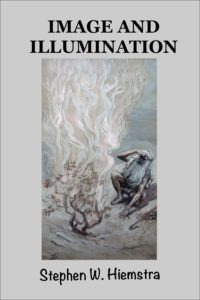Lost Transcendence

There shall not be found among you anyone
who burns his son or his daughter as an offering,
anyone who practices divination or tells fortunes
or interprets omens, or a sorcerer or a charmer or a medium
or a necromancer or one who inquires of the dead,
for whoever does these things is an abomination to the LORD.
(Deut 18:10-12)
By Stephen W. Hiemstra
Suppose that you are asked to visit with an elderly Baptist who says that they are frequently visited by a dead parent who advised them not to trust any of their siblings. Do you respond by referring them for psychiatric help, offering a comforting presence, or advising that that the Bible teaches that the dead are not supposed to speak with the living? (Deut 18:10-12; 1 Sam 28)
Your response to this question depends heavily on your worldview. The first alternative in this example is motivated by a materialistic worldview, where the physical realm is the only realm. The second is motivated by a liberal Christian perspective, where consolation is prioritized over transformation. The third is motivated by a traditional Christian perspective, where the Bible guides dealings with the spiritual world. What divides and orders these responses is the attitude about transcendence.
Transcendence Denial and Ethics
In creating the heavens and the earth, God transcends both, just like a carpenter is not part of the cabinet that he crafts. The materialist perspective limits reality to sensory objects: Things that you can touch, feel, taste, hear, and see. The materialist reality includes the earth and heavenly objects, like the moon, planets, and stars, but does not include God or heaven, as described in the Book of Revelation.
The materialist cannot believe in God because nothing outside of the physical realm can by definition exist, which implies that the materialist is by definition an atheist. The influence of the materialist view grow rapidly in the twentieth century because of the political power of communist governments.
Materialism immediately influences ethics because accountability is limited to the physical realm. A materialist does not believe in accountability to God or any other authority outside of culture. This implies that communist governments were accountable to the communist party, the source source of authority. Even communist principles, constitutions, and law may be fluid because nothings transcends party authority, which changes with circumstances.
The increasing influence of materialism chips away at concepts, like human rights and democracy, which arise because we are created in the image of God. Atheists and other secularists often embrace human rights and democracy as political views, but deny the theological link to God’s image. The problem arises, however, that political views and other values are seldom held as deeply as religious convictions, which is why they are so easily abandoned when moods change. The war in Ukraine and the events of January 6th, 2021 are just the most obvious manifestations of mood change.
Transcendence and Law
The value of human life stems from being created male and female in God’s image. Because the materialist denies God’s existence, ethics are determined primarily by law and regulation. In a democracy, this implies that ethics are subject to political debate and manipulation. Under authoritarian regimes, ethics reflect the preferences of elites. Customs good and bad also have their influences.
Transcendence and the Church
The influence of materialism on the church appears as a sense of lost transcendence. The Apostle Paul writes: “If Christ has not been raised, your faith is futile and you are still in your sins.” (1 Cor 15:17) In other words, if Jesus was not resurrected, then he could not have died for our sins. Transcendence is critical to Christian theology.
Transcendence is a human need. We want to believe that the material world is not all there is. If God existence is defined away by our practical materialism, then other things slip into the equation to substitute for the lost transcendence.
Outside the church, we see greater interest in ecstatic experiences, such as drug use, binging, hyper sexuality, paranormal events, and unnecessary risk taking. Inside the church, we see greater interest in uplifting worship, charismatic experiences, religious tourism, mountain top experiences, and desire for consolation instead of transformation. The list of substitutes for transcendence is endless.
Faith and Transcendence
The Good News is that centering on God’s image helps us to recognize God’s work in our lives. This is a practice of contemplation, much like Lectio Divina contemplates scripture (Peterson 2006,91) or counting your blessings. Each of these practices help make God’s existence more real to us. In my case, I journal in the morning, taking note of the activities and experiences of God in the previous day, a practice known as a daily examine.
Faith is a step-by-step process, not a big gulp requiring strenuous effort. Our routines either open us up to God or make awareness of God’s presence more difficult.
References
Peterson, Eugene H. 2006. Eat This Book: A Conversation in the Art of Spiritual Reading. Grand Rapids: Eerdmans
Also see:
The Who Question
Preface to a Life in Tension
Other ways to engage online:
Author site: http://www.StephenWHiemstra.net
Publisher site: http://www.T2Pneuma.com
Newsletter at: https://bit.ly/hot_2022, Signup
The post Lost Transcendence appeared first on T2Pneuma.net.



